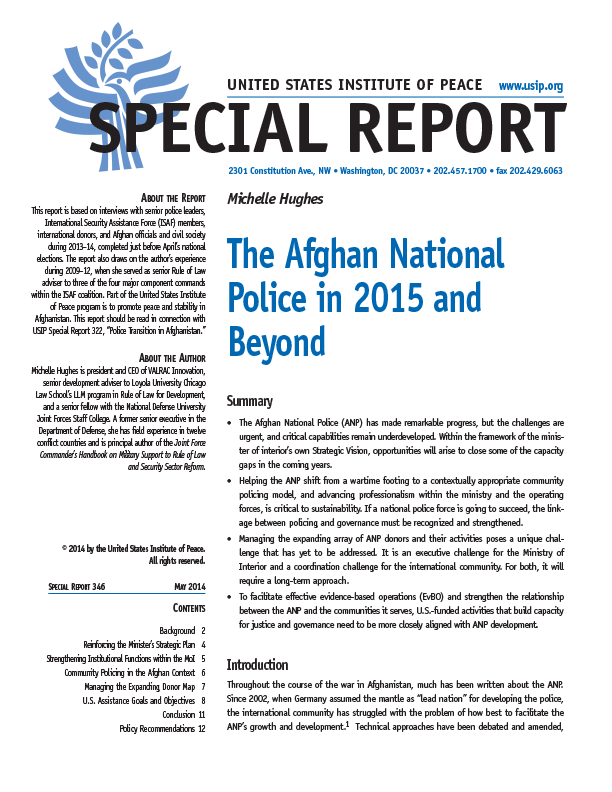As Afghanistan shifts from a war footing and coalition forces draw down, the Afghan National Police faces a daunting task. Not only must it shift from military-oriented security operations to true community policing, but it must also fill some considerable gaps in its capacity to manage itself as a civilian-led arm of a democratically elected government. Development is crucial, but for it to have any legitimacy, the impetus must come from the Afghans themselves. At this critical juncture, donor nations and organizations must unite to help the Afghans integrate this effort across the full spectrum of governance.
Summary
- The Afghan National Police (ANP) has made remarkable progress, but the challenges are urgent, and critical capabilities remain underdeveloped. Within the framework of the minister of interior’s own Strategic Vision, opportunities will arise to close some of the capacity gaps in the coming years.
- Helping the ANP shift from a wartime footing to a contextually appropriate community policing model, and advancing professionalism within the ministry and the operating forces, is critical to sustainability. If a national police force is going to succeed, the linkage between policing and governance must be recognized and strengthened.
- Managing the expanding array of ANP donors and their activities poses a unique challenge that has yet to be addressed. It is an executive challenge for the Ministry of Interior and a coordination challenge for the international community. For both, it will require a long-term approach.
- To facilitate effective evidence-based operations (EvBO) and strengthen the relationship between the ANP and the communities it serves, U.S.-funded activities that build capacity for justice and governance need to be more closely aligned with ANP development.
About the Report
This report is based on interviews with senior police leaders, International Security Assistance Force (ISAF) members, international donors, and Afghan officials and civil society during 2013–14, completed just before April’s national elections. The report also draws on the author’s experience during 2009–12, when she served as senior Rule of Law adviser to three of the four major component commands within the ISAF coalition. Part of the United States Institute of Peace program is to promote peace and stability in Afghanistan. This report should be read in connection with USIP Special Report 322, “Police Transition in Afghanistan.”
About the Author
Michelle Hughes is president and CEO of VALRAC Innovation, senior development adviser to Loyola University Chicago Law School’s LLM program in Rule of Law for Development, and a senior fellow with the National Defense University Joint Forces Staff College. A former senior executive in the Department of Defense, she has field experience in twelve conflict countries and is principal author of the Joint Force Commander’s Handbook on Military Support to Rule of Law and Security Sector Reform.
